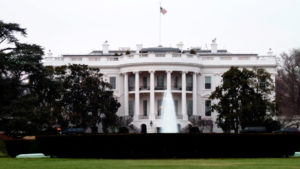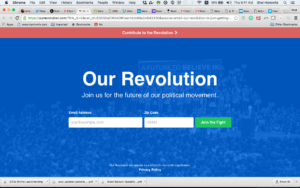Progressives can be a gloomy lot. Too often, we focus on all the things wrong with society, all the problems we need to fix. I say “we,” because I’ve certainly done my share of that global kvetch.
But every once in a while, we actually win a major victory. I’ve been actively involved in a few of them, and I have to tell you, they feel great.
One of my favorite members of Congress, Rep. Alan Grayson (D-Fla) knows the importance of celebrating our victories. He sent out an e-mail with the headline, “Hey, We Progressives Won Something.”
I opened the e-mail and discovered what we won: we didn’t go to war against Syria. And Syria destroyed its chemical weapons stockpile, under international supervision. The massive outcry of opposition certainly helped us get there.
Grayson gives us a lot to celebrate:
Let’s celebrate the war that never happened.
Let’s celebrate NOT having to hold sad and somber funerals for young Americans who would have lost their lives fighting in Syria.
Let’s celebrate NOT having to nurse and care for the wounded veterans who would have returned from the U.S.-Syrian war.
Let’s celebrate Congress NOT having to appropriate billions of tax dollars in emergency spending to support U.S. military operations in Syria.
Let’s celebrate NOT having to attend bitter marches protesting the U.S. war in Syria.
Let’s celebrate NOT having to rebuild Syria’s roads and bridges and schools, so that we can have a shot at rebuilding our own.
Let’s celebrate peace.
We won the battle, and the military-industrial complex lost the war.
We should be proud of our victories, because our victories matter. I know that politics sometimes can seem discouraging right now. Progressive often seem to lose, and lose frequently. But, you know what? Sometimes we win. And when we win, we save lives. We promote equality. We serve the cause of justice. We improve people’s lives.
(You can read Alan Grayson’s whole essay at this blog.)
Indeed, we do! Our actions–as individuals, and especially when we band together–actually do make a difference. Think how much poorer the world would be if the likes of Nelson Mandela, Lech Walensa, Wangari Maathai (the tree-planting woman of Kenya, who won a Nobel Prize for her work establishing a greenbelt in her country), Gandhi, Gray Panthers founder Maggie Kuhn, and Martin Luther King, Jr. had not walked it.
And you don’t need to be an activist. The world is richer for the presence of scientists like the brilliant energy strategist Amory Lovins, who is still very much alive–and Jonas Salk, Rachel Carson, and George Washington Carver, who are not…writers like Harriet Beecher Stowe, Alice Walker, and even Chicken Soup’s Jack Canfield (his The Success Principles is the one self-help book I regularly recommend)…and ordinary people whose names you won’t recognize, who turned their lives into blessings for the world. I’m going to honor one of those unknown heroes by name: my late mother, Gloria Yoshida, who was a civil rights volunteer in the 1960s. If a black person was told an apartment had already been rented, my 5’3″ white, Jewish mom was one of the people who would go and try to rent it afterwards. I remember her yelling at our own landlord, who towered over her, and looked pretty ashamed as she lit into him because “you just don’t want to rent to them because they’re black.”
That family history made it easier for me to take on a long list of causes over the past 40 years–even organizing the movement that saved a threatened mountain while all the “experts” said “this is terrible, but there’s nothing we can do.”
What are YOU doing to make the world better? Please share in the comments section, below.






